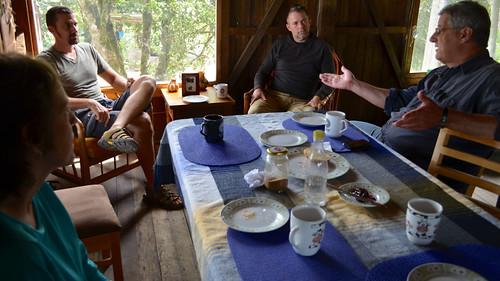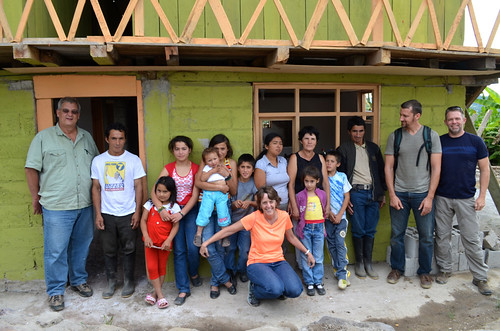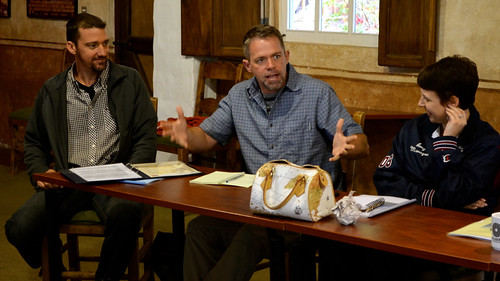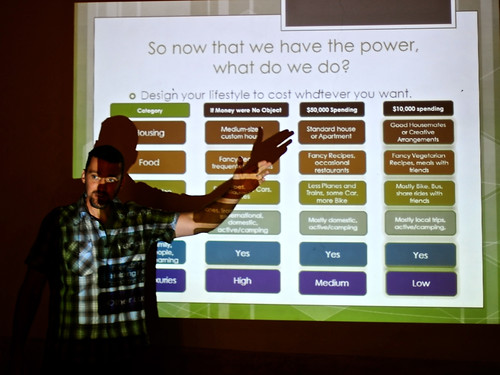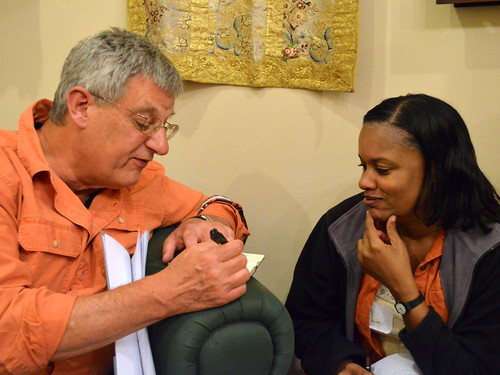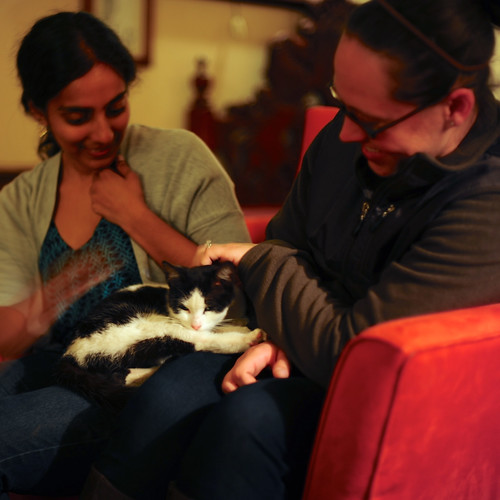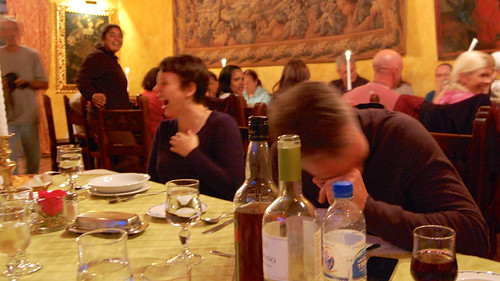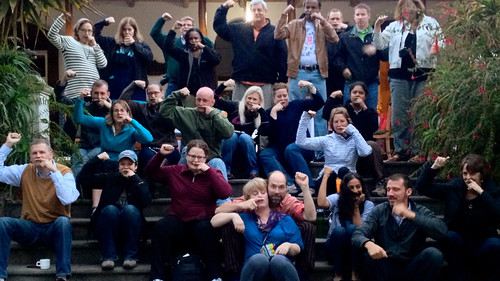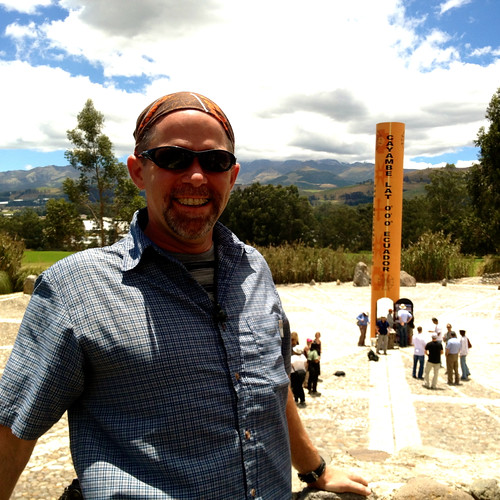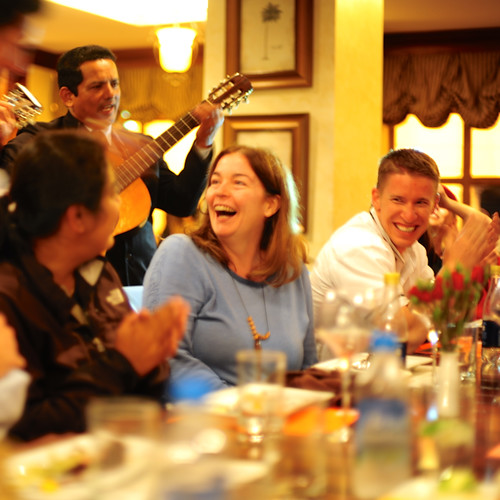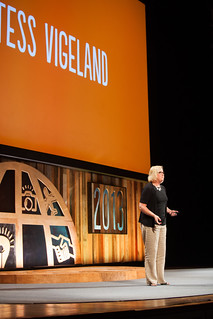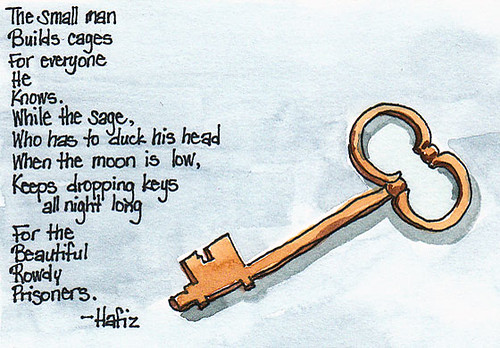I had lunch with a friend today. Let’s call him Tom. Tom is a colleague. He makes his living from a website. In fact, his site is probably the most financially successful site I know. For years, it’s had an income of hundreds of thousands of dollars.
You might think that with his financial success, Tom would be ecstatic. And there’s no doubt he’s a happy man, grateful for his financial good fortune. All the same, his wealth hasn’t made him happy. In fact, it’s caused him a great deal of stress.
For one thing, he doesn’t feel like he deserves the money. What has he done that others haven’t that he should have such a high income? (Never mind that he gives away tons of money to friends and family — and strangers — every year. Never mind that he employs a small staff of folks when he doesn’t really have to.)
For another, he’s worried that the flow of money will cease. “I have plenty saved,” he told me. “My site has earned me five million dollars since I started it, and I’ve saved about twenty percent of that.” Still, he doesn’t feel like he’s saved enough. Plus, he’s worried about his lifestyle. Is he spending too much? What if the income from the site were to suddenly vanish?
There’s no doubt that Tom has First World problems. He’s the first to admit that it’s crazy to have so much money and still be stressed about his financial situation. But that doesn’t change the fact that he’s stressed. (Actually, lots of folks in his position tend to get anxious.)
“It’s gotten so bad that I’m seeking professional help,” Tom told me. “After lunch, I’m going to see a shrink for the first time. Can you believe it?”
“Actually, I can,” I said. “I just came from my own shrink. I’ve been seeing a psychologist for three weeks now.”
Impetus
I have a degree in psychology. For a long time, I thought I was going to be a counselor. That’s what I trained for throughout college. In high school, I played amateur shrink for all of my friends (boys and girls alike), and I thought it made sense to take this “talent” and turn it into a career.
I never did become a psychologist. Instead, I ended up selling boxes for the family business. And, eventually, I became a financial writer (who specializes in the psychology of money). But even today I sometimes dream of returning to grad school and becoming a professional counselor.
Given this, you might think I would have seen a therapist long ago. After all, one of the first rules of therapy is that the therapist herself should also have a therapist.
But no.
Like many people, I’ve always had a stigma against seeing a therapist. I thought it would mean admitting something was wrong with me.
That view began to change about a year ago. When I asked Kris for the divorce, she urged me to see a therapist. I told my friend Michael about this (among other things, Michael is a family counselor), and told him I was reluctant to go.
“You’re looking at it all wrong, J.D.,” he said.
“What do you mean?” I asked.
“You’re healthy now, aren’t you?” he asked. “You’re physically fit.”
I nodded.
“Well then why do you still need to go to the gym? Why keep taking Spanish lessons if you know Spanish? Why ever use any sort of coach when you know what you’re supposed to be doing? Well, a therapist is the same thing. Yes, a therapist can help fix things that are broken, but a good one can also keep you functioning at the top of your game. A therapist is like a personal trainer for your mind.”
I heard what Michael was saying, but it wasn’t enough. I still wasn’t ready to talk to a counselor.
Catalyst
About a month ago, I was talking with another friend. Let’s call her Antonia. We were catching up on our lives over dinner when she mentioned that she’d recently started seeing a therapist.
“What for?” I asked, not one to mince words.
“No reason really,” Antonia told me. “I’ve been thinking about some heavy things lately, and I just wanted to bounce them off an objective third party. I tried to see one at my HMO, but they wouldn’t take me on. They said there was nothing wrong with me, and to go away. Fine. I asked a friend, and he recommended his own therapist. So, I’ve been seeing her for a few weeks. It’s interesting.”
“How so?” I asked.
“Well, I tell my therapist about the things that are on my mind, and then she gives me homework. It sounds goofy, I know, but it’s really helped me clarify some stuff. It’s helped me let go of some things that I didn’t even know were holding me back.”
As the conversation moved on, I thought about this exchange. At the end of the evening, I asked Antonia for her therapist’s contact information. I set up an appointment for myself. Two weeks ago, I saw the therapist for the first time. I’ve been back twice more.
Therapist
I was half an hour late to my first appointment because I had the wrong address. Plus, I hadn’t filled out any of the paperwork I was supposed to have ready. Every other psych major reading those two sentences sees the same thing I do: My subconscious was doing its best to avoid the appointment. Crazy but true.
During that short first meeting, I gave the therapist some background on my life. I explained that for the past month, I’d been tense. Anxious. Stressed. I told her how much I hated uncertainty.
“Well, J.D.,” she said, “it sounds like you had a life full of certainty and you consciously gave that up. You’ve chosen uncertainty. You like some of what uncertainty brings, but you don’t like other parts. But you know what? You have to be okay with the unknowing. It’s part of the process of change and growth.”
Duh, right? And yet I hadn’t been able to see that. She gave me some breathing exercises and sent me on my way.
I was on time for my second appointment, and I had the paperwork I was meant to bring to the first. Plus, I brought a list of topics to discuss. Once again, we spent some time talking about my past and my present. And once again, my counselor connected the dots for me.
“It sounds like you have a tendency to overcommit,” she told me. “You take on too much. But more than that, you go big fast instead of taking it slow and steady. This can cause problems. It led to debt and being overweight. It can also cause problems in relationships, so be careful.”
“You’re right,” I said. “My attitude has always sort of been that if a little is good then a lot must be better. And it’s been tough for me to defer gratification.”
“Right,” she said. “You need to learn what my grandmother would have called temperance. Moderation. You need to learn finesse. You need to learn the importance of choice, of being selective. And remember: You don’t need to say every single thing you think.”
Duh, right? And yet I hadn’t been able to see these things, and I especially hadn’t tied them all to relationships. She gave me some things to practice during the week and sent me on my way. I spent the next three days deep in internal reflection.
Today, I didn’t need to give any additional background. My counselor asked me about my weekend. I told her about the things Kim and I had done, about how much I’d enjoyed just relaxing with her, being domestic. I also talked about how when I’m with Kim, I’m intentionally technology free. I put away the cell phone and the iPad and the computers, and I’m off-grid for 72 hours. It helps me stay present in the moment.
This led to a fascinating discussion of my memory. Why is it I can remember dates and names and the title of nearly every episode of “Star Trek: The Next Generation” — yet I can’t remember to turn off the bathroom light or shut the shower curtain?
My therapist told me that from what I’ve said and what she’s seen, I might have a mild case of ADHD. (This is no news to me. It’s also no news to you if you’re a long-time reader.) We talked about the other things I do that seem ADHD, and she told me some things I can do to fight them. I’ve noted, for instance, that I get more work done when I work in coffee shops. She said that’s probably because the external stimuli distract the part of my brain that wants to jump all over the place.
Duh, right? And yet I hadn’t been able to see some of this. We talked about some things I might want to work on, and she sent me on my way.
Futurist
My therapy may be short lived and have no huge practical application in my life. Or maybe it will change who I am. I’m not sure yet. And it doesn’t really matter.
I went because something felt wrong, and I wanted to figure out what. I still don’t know exactly what was bothering me. I do know that after just two weeks and three sessions, I’m much more relaxed about everything in my life. I’ve been practicing breathing. I’ve been practicing finesse. Now I’m going to practice being more present in the moment, turning off the ADHD.
I find it interesting that whenever I mention I’ve been seeing a therapist, the person I’m talking with always says something like, “Oh! What’s it like? I’ve been wanting to do that but don’t know where to begin.” Is this one of those things that happens when we turn forty? Is this like needing glasses? I don’t know. But I’m curious to see what other things therapy will teach me about myself.

